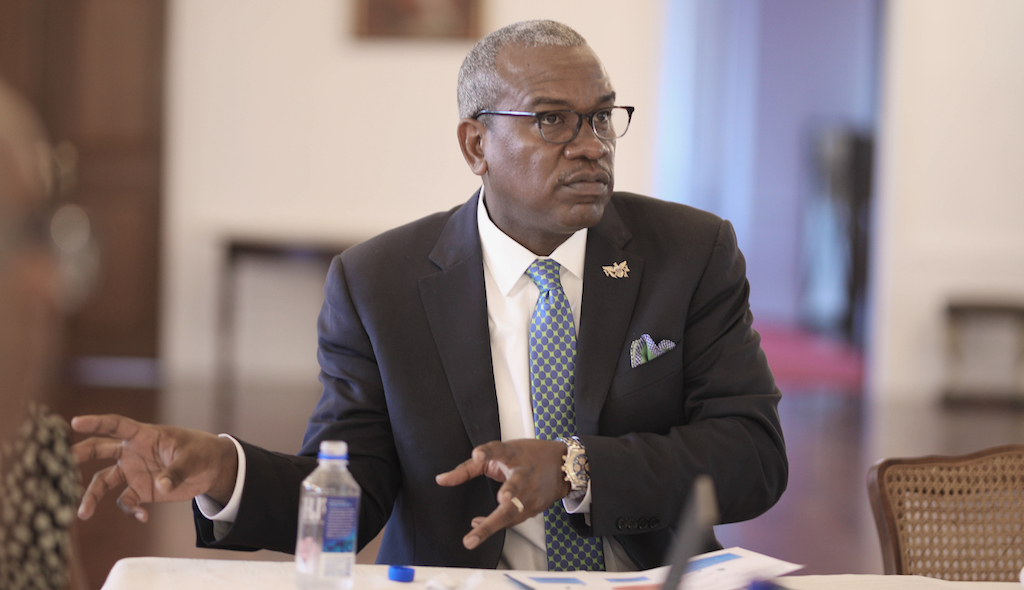CHRISTIANSTED — Governor Albert Bryan, Jr. has proposed legislation requesting that the Virgin Islands Legislature approve the use of $60 million to supplement government operations in anticipation of a COVID-19 related economic downturn.
The 33rd Legislature is scheduled to take Bryan’s proposed legislation up during a legislative session tomorrow.
The governor’s proposed measure will authorize the use of any available source of public funds to issue revenue anticipation notes for working capital to supplement government operations amid an impending downturn in revenue collections as a result of COVID-19.
Bryan said Wednesday that while the public health and safety of the territory’s residents is his primary concern and the focus of the government’s response, it is also important to proactively plan for the economic impact of the COVID-19 pandemic.
“The Coronavirus (COVID-19) has impacted the global, national, and local economies substantially, and the Virgin Islands has, as a consequence, experienced and expects to continue to experience, among other economic factors, significant disruption to the travel and cruise tourism industry,” Governor Bryan said.
The proposed legislation also would authorize the governor to:
• Negotiate the final terms of all borrowing vehicles approved by the legislation as the governor and the Public Finance Authority deem necessary
• Execute and deliver all documents and agreements necessary in connection with the borrowing.
• Pay all expenses associated with the issuance of any authorized borrowing.
The legislation also would require the Virgin Islands Department of Finance to report to the Senate Finance Committee no later than 15 business days following any draw of principal borrowed and provide information regarding the purpose for which the funds were used, as well as a description of the source of the repayment.
The interest rate on any revenue anticipation notes or bonds would not exceed six percent, and the maximum principal amount that can be borrowed is capped at $60 million.

